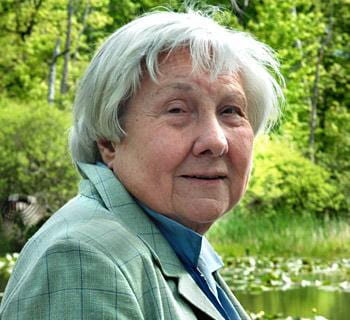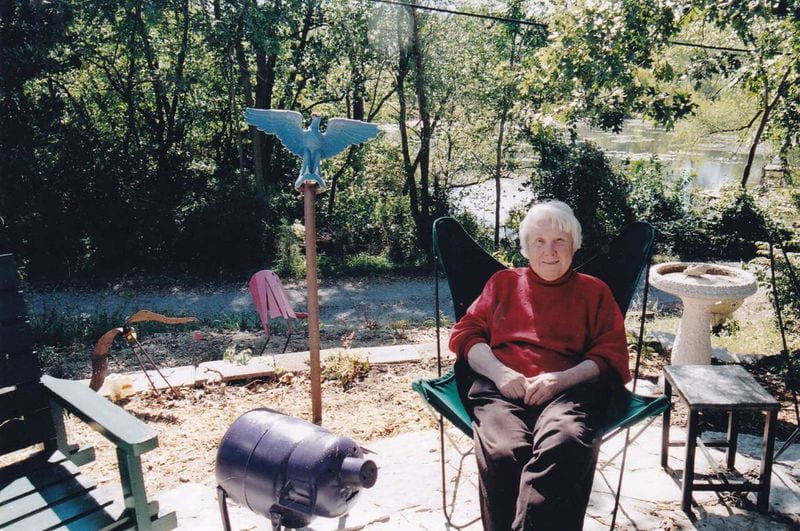
While Millennials and Gen Zers are leading the way on climate change activism and environmental justice here in 2019, their passion for change and stalwart efforts against seemingly insurmountable barriers are inspired by and built upon the efforts of previous generations of environmental advocates. On such champion — local conservationist, activist, writer, editor, film documentarian, and policymaker Lee Botts (1928-2019) — died this past Saturday in Oak Park, IL.
According to the tribute to Botts posted in the Hyde Park Herald, for which she wrote a garden column in the late ’50s and later served as editor from 1966-69:
“Lee Botts was editor of the Herald during the late 1960s implementation of the urban renewal plans,” said Herald Chairman Bruce Sagan, who has owned the newspaper since 1953. “Her objective journalism was a crucial component of the civic discussion during that complex history.”
In 1968, she joined the staff of the Open Lands Project in Chicago. From 1971 to 1975, she was the founding executive director of the Lake Michigan Federation, which is today the Alliance for the Great Lakes. Under Botts’ leadership, the new organization persuaded Mayor Richard J. Daley to have Chicago become the first Great Lakes city to ban phosphates in laundry detergents, led U.S. advocacy for the first binational Great Lakes Water Quality Agreement in 1972, was a key advocate for the landmark federal Clean Water Act of 1972 and played a key role in persuading Congress to ban PCBs via the 1974 Toxic Chemicals Control Act.
After a short stint with the Environmental Protection Agency Region 5 office in Chicago, President Jimmy Carter appointed her to head to the Great Lakes Basin Commission in Ann Arbor, Michigan, in 1977. After the agency was eliminated from the federal budget, Botts held a research faculty appointment at Northwestern University from 1981 to 1985.
She joined the senior staff of Mayor Harold Washington in 1985, organizing the city’s first-ever Department of the Environment. In 1986, with Washington’s endorsement and support, Botts ran for the board of the Metropolitan Sanitary District of Greater Chicago but lost by 2%.
Botts relocated to Northwest Indiana in 1988, where she became an adjunct professor at a local college and joined various boards and committees. While living in Gary’s Miller Beach neighborhood, she began advocating for an idea she’d first written about a quarter-century earlier: the Indiana Dunes Environmental Learning Center, which she helped found in 1997.
An independent non-profit located within Indiana Dunes National Park, the Dunes Learning Center offers year-round environmental education programs and overnight nature-camp experiences for grade-school students and teachers. Today, nearly 10,000 students come to the center each year from school systems throughout Indiana, Michigan and Illinois. Botts initially chaired the institution’s board of directors.
For many years, Botts suggested that the modern history of the Indiana Dunes region could become an engaging documentary film. With director Patricia Wisniewski, she began working on making “Lee’s dunes film” in 2010, writing the film’s script, conducting many of the interviews, leading the fundraising effort and traveling to promote the project, even after she was no longer able to drive her own car.
“Shifting Sands: On The Path To Sustainability” was released in 2016 and won a regional Emmy Award. To date, it has been broadcast on more than 70 public-television stations, included in several major film festivals and screened by scores of local citizens’ groups and public libraries throughout the states bordering Lake Michigan.
Botts was awarded a citation from the United Nations Environmental Program for making a difference for the global environment in 1987, the 2008 Gerald I. Lamkin Award from the Society of Innovators at Purdue University Northwest and honorary doctorates from Indiana University and Calumet College of St. Joseph. She was inducted into the Indiana Conservation Hall of Fame in 2009.
A person who did any one of the above accomplishments would rightly be lauded for the impact of their work on behalf of people and the environment. The fact that Lee Botts did all this and more — through her own will, dedication, and fierce advocacy as well as her ability to connect and collaborate with others — is nothing short of astounding.

See these sources for more information on Lee Botts:
Environmentalist and former Herald editor Leila “Lee” Botts dies at 91 (Hyde Park Herald)
Lee Botts’ children reflect on her life as pioneering environmentalist, advocate for the Great Lakes (The Times, NY Indiana)
Environmentalist, journalist and documentarian Lee Botts of Gary dead at age 91 (Post-Tribune)